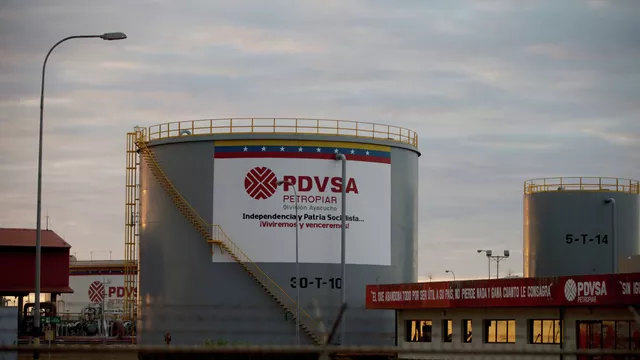Caracas has warned that it may strip Western energy companies of highly lucrative extraction contracts and replace them with oil and gas majors from the BRICS bloc. Which American and European firms currently have a major stake in Venezuela's oil sector, and who may be in line to replace them? Sputnik explores.
Venezuelan President Nicolas Maduro told reporters on Friday that the country’s biggest energy investments are coming from BRICS members, and warned that if the US and its allies “make the mistake of their lives” by continuing their attempts to destabilize Venezuela, their oil and gas contracts could go to Venezuela’s BRICS allies.
Possessing an estimated 300 billion barrels of oil and 195 trillion cubic feet of natural gas, Venezuela accounts for a whopping 17% of global reserves of crude oil, and about 3% of known gas reserves. BRICS+ collectively accounts for some 43% of global oil reserves, and has about 50% of the world’s gas reserves, meaning if Venezuela were to ramp up cooperation with and ultimately join the bloc (as Caracas has expressed interest in doing), these indicators could jump to 60% and 53%, respectively.
State-owned oil giant Petroleos de Venezuela (PDVSA) is Venezuela’s largest energy producer, with total national output by PDVSA and foreign partners reaching 993,000 barrels per day (bpd) in July, and shipped to Asia, the US, Europe and Cuba.
What Сontracts Сould West Stand to Lose?
US and European energy giants were largely frozen out of operations in Venezuela in 2019 by US sanctions threats. A 2022 deal enabled their return in an oil-for-debt arrangement designed to minimize cash flowing into PDVSA’s coffers. US oil giant Chevron now pumps up to 200,000 bpd of Venezuelan crude from four joint venture sites, and plans to increase output by another 65,000 bpd by year’s end.
Spanish oil major Repsol extracts some 20,000 bpd of oil and 40 million cubic feet of gas daily, and is looking to expand its stake in undeveloped oil fields with a production potential of over 300,000 bpd. Repsol’s output is concentrated at four main sites, including the offshore Perla Field off Venezuela’s northwest coast.
Italian energy company Eni has also been authorized to resume pumping oil in Venezuela, with a joint venture with PDVSA in the Petrosucre field producing about 2,200 bpd (but able to produce 24,000 bpd or more historically). Eni is also in talks with PDVSA about unfreezing the shallow-water Corocoro crude project, and joining the Perla gas project.
Who Could Replace Western Energy Companies?
Historically, Venezuela has proved capable of producing upwards of 3.5 million bpd of oil. When production dipped to just 393,000 bpd in mid-2020 thanks to crippling US sanctions, Caracas turned to its partners, including Iran and Russia, to ride out the crisis.
Iran sent a series of humanitarian flotillas packed with spare parts for refineries and emergency gasoline supplies.
Russia, for its part, stepped in to assist in the export of Venezuelan oil supplies abroad while avoiding US sanctions. Russian operations in Venezuela have been managed by Roszarubezhneft since 2020, when oil giant Rosneft quit the Venezuelan market due to US sanctions threats. Five Roszarubezhneft-PDVSA joint ventures currently produce up to 125,000 bpd.
Global uncertainty, the crisis in the Middle East, the West’s politicized block on Russian oil purchases and heightened tensions in East Asia mean global demand for energy will continue to remain strong for the foreseeable future.
If Western countries proceed with the US-led effort to try to undermine Venezuela and plot coups to replace Maduro, Caracas has plenty of foreign friends with ample experience operating in the Latin American country, from Russia’s Roszarubezhneft to the China National Petroleum Corporation and Sinopec, Belorusneft AZS, and Indian National Oil Company subsidiary ONGC Videsh Limited.


No comments:
Post a Comment